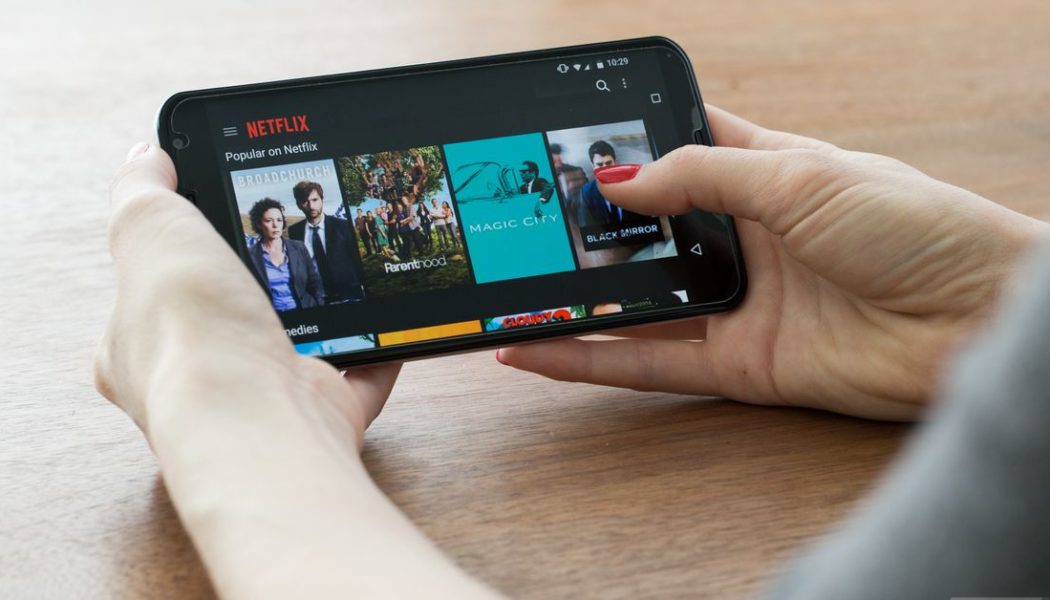
As Netflix’s streaming rivals like Prime Video and HBO Max’s WarnerMedia focus on consolidation and studio acquisitions, Netflix is instead prioritizing its own service and investment in games over snapping up any available studio IP. It’s a refreshing shift away from buying distressed movie studios or long-forgotten catalogs. But will it work?
Netflix spelled out its streaming strategy in its second quarter letter to its shareholders. Citing recent mergers between WarnerMedia and Discovery and the last decade of acquisitions and mergers between major media properties — for example, with Disney and Fox or Viacom and CBS — the company said it doesn’t “believe this consolidation has affected our growth much, if at all.” (If I’m a streaming service right now, surely that one has to sting.)
Moreover, Netflix isn’t shopping for studios in the same way its rivals have been. Netflix’s strategy instead continues to be simply making itself better. Put another way, Netflix wants to be more like social apps than other streaming services. Its main competitor in the space, according to Netflix, is itself.
“While we are continually evaluating opportunities, we don’t view any assets as ‘must-have’ and we haven’t yet found any large scale ones to be sufficiently compelling to act upon,” the company wrote in its shareholders letter. “In the race to entertain consumers around the world, we continue to compete for screen time with a broad set of firms like YouTube, Epic Games and TikTok (to name just a few). But, we are mostly competing with ourselves to improve our service as fast as we can.”
For a company that seems uninterested in shopping for movie studios, Netflix executives touched on the acquisition and consolidation race a number of times during the earnings call on Tuesday. While Netflix is open to the right opportunity, the company’s top brass said that Netflix is “picky” when it comes to assets and IP.
To be clear, Netflix is still leading in the ongoing battle for our eyeballs (and our money). Netflix, which has around 209 million paid subscriptions, is most closely tailed by Disney Plus, which has roughly half that number of paid memberships. With its decade-plus lead on other streaming services, Netflix has more runway to experiment with its product and take the kinds of risks that smaller services simply cannot.
That brings us to games. While Netflix hasn’t given us a specific timeline for game releases, beyond saying the initiative would be a multiyear endeavor, the company did say it believes “the time is right” to explore the expansion. Netflix has said repeatedly that it believes its primary competitors are high-engagement venues like TikTok and Fortnite. But Netflix’s dive into gaming in earnest — rather than through one-off experiments like a Stranger Things game or even Bandersnatch — comes at a transitional time for the streaming giant as the world begins to reopen and streaming faces new hurdles for hooking and retaining subscribers.
The company said that it added 1.5 million paid memberships in the second quarter of 2021 over its 1 million guidance forecast, even while it lost some 400,000 paid net adds. But while the company said its business is healthy and its churn rate — the number of members leaving the service — is down when compared to a more “comparable” quarter from 2019, CFO Spencer Neumann said during the company’s earnings interview that Netflix is still feeling “a little bit of that drag in terms of our acquisition growth as we’re kind of working through what we hope is — and we can’t be sure — but what we hope is the tail end of this covid chopiness.”
When looking at the company’s future challenges this way, Netflix’s big bet on gaming tracks. It creates new ways to extend the shelf life of content and characters that are already resonating with viewers. But what would Netflix games even look like?
Speaking to the company’s strategy for gaming moving forward, Netflix COO and chief product officer Greg Peters reiterated during the call that the company viewed gaming as “an extension of the core entertainment offering that we’ve been focused on for the last 20 years.” It plans to develop games for mobile first, though other formats may be considered down the line. And while Netflix plans to experiment with its approach to gaming, Peters said it will include licensing opportunities, games that build on its existing IP, and standalone games. According to Peters, that could even include a game that generates enough hype to be spun into a film or series.
“Just as we’ve continuously expanded our offering by adding new genres, unscripted, film, local-language programming, animation, on and on, we think we have an opportunity to add games to that offering and deliver more entertainment value to our members,” Peters said. He added that the company planned to “start relatively small” and that Netflix’s foray into the gaming space would be a “multi-year effort.”
Whether the gamification of Netflix content will help it scale in any meaningful way is impossible to say right now. But Netflix’s focus on content and product over IP acquisitions and mergers — the preferred play by most of its streaming peers at present — indicates that Netflix is very much still operating in a league of its own.









